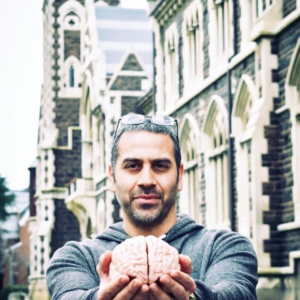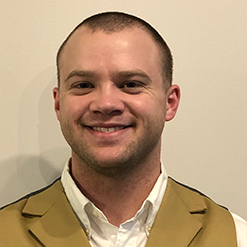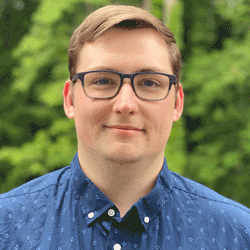Colon Cancer Study
Cancer remains a leading cause of morbidity and mortality worldwide, with colon cancer among the leading fatal and common cancers1. Despite important progress in cancer therapies, many treatments have side effects (e.g., inflammation, hair-loss, cognitive impairments, fatigue). If a resilience factor, which inhibits multiple oncogenic factors and improves patients’ well-being, could be found and targeted, it could help advance cancer patient care and recovery. Autonomic nervous system (ANS) functioning is one potential resilience factor that has demonstrated changes in colon cancer response to care. 2,3 Evidence suggests that high vagal activity (an ANS component) can independently predict longer cancer survival 2,3 and that complementary healthcare approaches may influence this activity 4.
Life University is investigating the underlying mechanisms of action related to spinal manipulation (a complementary healthcare approach) and its impact on health and wellbeing, including expanding our understanding of chiropractic’s influence on ANS functioning. The Dr. Sid E Williams Center for Chiropractic Research (CCR) is teaming up with doctors in the metro-Atlanta area to examine the effects of chiropractic care on quality of life and autonomic nervous system functioning in patients with colon cancer.
References
- Wilson JA. Colon cancer screening in the elderly: when do we stop? Trans Am Clin Climatol Assoc 2010;121:94-103.
- Zhou X, Ma Z, Zhang L, et al. Heart rate variability in the prediction of survival in cáncer patients: a systematic review and meta-analysis. J Psychosom Res 2016;89:20-5.
- De Couck M, Caers R, Speigel D, et al. The role of the vagus nerve in cancer prognosis: a systematic and a comprehensive review. J Oncol 2018 (online article – https://doi.org/10.1155/2018/1236787).
- Gidron Y, De Leewe I, De Couck M, (2017). The effects of heart rate variability biofeedback on levels of tumor marker CEA in colon cancer: a pilot controlled study. Poster 75th annual meeting Am Psychosomatic Society, Sevilla, Spain.

Meet the study team!
TEAM MEMBERS
Yori Gidron, Ph.D., Principal Investigator
 |
Yori Gidron, PhD, is professor of health psychology at the dept of nursing, University of Haifa, Israel. He is a psychoneuroimmunologist. He specializes in the research of neuro-cognitive factors in health and diseases, with a particular focus on the protective role of the vagal nerve in severe diseases. He has over 130 publications and is on the editorial board of 4 scientific journals. He strongly believes that health research can bridge between people and countries. |
Tyson Perez, D.C., Ph.D., Co-Investigator
 |
Tyson Perez, D.C., Ph.D. is a neuroscientist at the Dr. Sid E. Williams Center for Chiropractic Research. He is graduate of Southern California University’s Doctor of Chiropractic (DC) program in the United States & the University of Otago’s Doctor of Philosophy (PhD) in Neuroscience program in New Zealand. His research interests include understanding the effects of chiropractic on the brain and autonomic nervous system (ANS).
|
Adrian Wenban, D.C., Co-Investigator
 |
Adrian Wenban presently serves as the principal of the Barcelona College of Chiropractic. He holds a B.Sc. (Anatomy), a B.App.Sc. (Chiropractic), a M.Med.Sc. (Clinical Epidemiology) and a P.Gr.Dip. (Medical Education). In practice for more than 30 years, he has practiced in 5 different countries, was an Associate Governor of the Australian Spinal Research Foundation from 1993 to 2004 and was the inaugural president of the Fundación Privada Quiropráctic from 2007 to 2009. In addition, he currently serves as a member of the ASRF’s Clinical Advisory Panel, is a member of the Cochrane Collaboration’s Patient Reported Outcomes Methods Group (PROMG), has been a member of the Spanish Chiropractic Association for the last 21 years and is currently enrolled in the last year of the Master in Medical Education at the University of Dundee’s School of Medicine. Adrian’s areas of interest include philosophy of science, curriculum development and reviewing peer-reviewed health care literature. He is a father of two and an avid cross triathlon competitor. |
Stephanie Sullivan, D.C., Ph.D., Co-Investigator
 |
Dr. Stephanie serves a as the Director of the Dr. Sid E. Williams Center for Chiropractic Research. She is a graduate of Life University’s Doctor of Chiropractic program and the University of Georgia’s Interdisciplinary Doctor of Philosophy and Neuroscience program within the Biomedical and Health Sciences Institute. Her research interests include development of the Well-being and Health Expression Evaluation List (WHEEL), cognitive efficiency, and the effect of chiropractic and applied clinical neuroscience care on brain-body neuroplasticity.
|
Emily Drake: Co-Investigator
 |
Emily is a research scientist for the Dr. Sid E Williams Center for Chiropractic Research. She has worked for the department since 2016 and currently leads a team of investigators examining the impact of chiropractic care on neural dynamics, autonomic nervous system functioning, human movement, and quality of life. |
Dr. Jonathan Moore, Co-Investigator
 |
Dr. Johnathon Moore is a dedicated Research Physiologist currently engaged in clinically relevant chiropractic research at Life University. His work involves collaborating on the development of practical research measures, including heart rate variability (HRV), stress assessments, human gait, and autonomic nervous system (ANS) testing for chiropractic practice. He is also a mentor and advises aspiring researchers. |
Dr. Maggie Sliwka, Co-Investigator
 |
Dr. Maggie Sliwka is a 2009 graduate of Life University’s Doctor of Chiropractic program and currently serves as the Research Clinician for the Dr. Sid E. Williams Center for Chiropractic Research. Her interest in chiropractic research focuses on creating and ensuring quality output of chiropractic interventions for LU studies, specifically through consistency in participant interactions and documentation. Outside of Life University, Dr. Maggie also works in private practice helping patients realize their health potentials through chiropractic care. |
Austin Garlinghouse, Co-Investigator
 |
Austin Garlinghouse became interested in research from his early studies at Reinhardt University where he earned his Bachelor’s degree in Psychology with a focus on experimental methodologies and analysis. During his studies, he conducted several research studies including research on Eyewitness Testimony and cortisol changes before and after exposure to essential oils. Austin Garlinghouse is the Research Lab Coordinator. As the Research Lab Coordinator, he is involved in every aspect of the CCR’s processes: participant outreach/recruitment, student involvement and learning, experiment or protocol development, and more. |
Dusty Baker, Co-Investigator
 |
Dusty is a Research Associate at the Center for Chiropractic Research. After graduating in 2015 from the University of Massachusetts Amherst with a Bachelor of Science in biology, they spent several years observing and exploring animal behavior and ecology as an Animal Care Technician at science museums such as Pacific Science Center in Seattle. They are now enjoying the opportunity to put their research background to use studying the human body and brain at the CCR. They are particularly interested in neuroscience, the symptoms and management of stress, and ways to make healthcare more accessible for everyone. |
